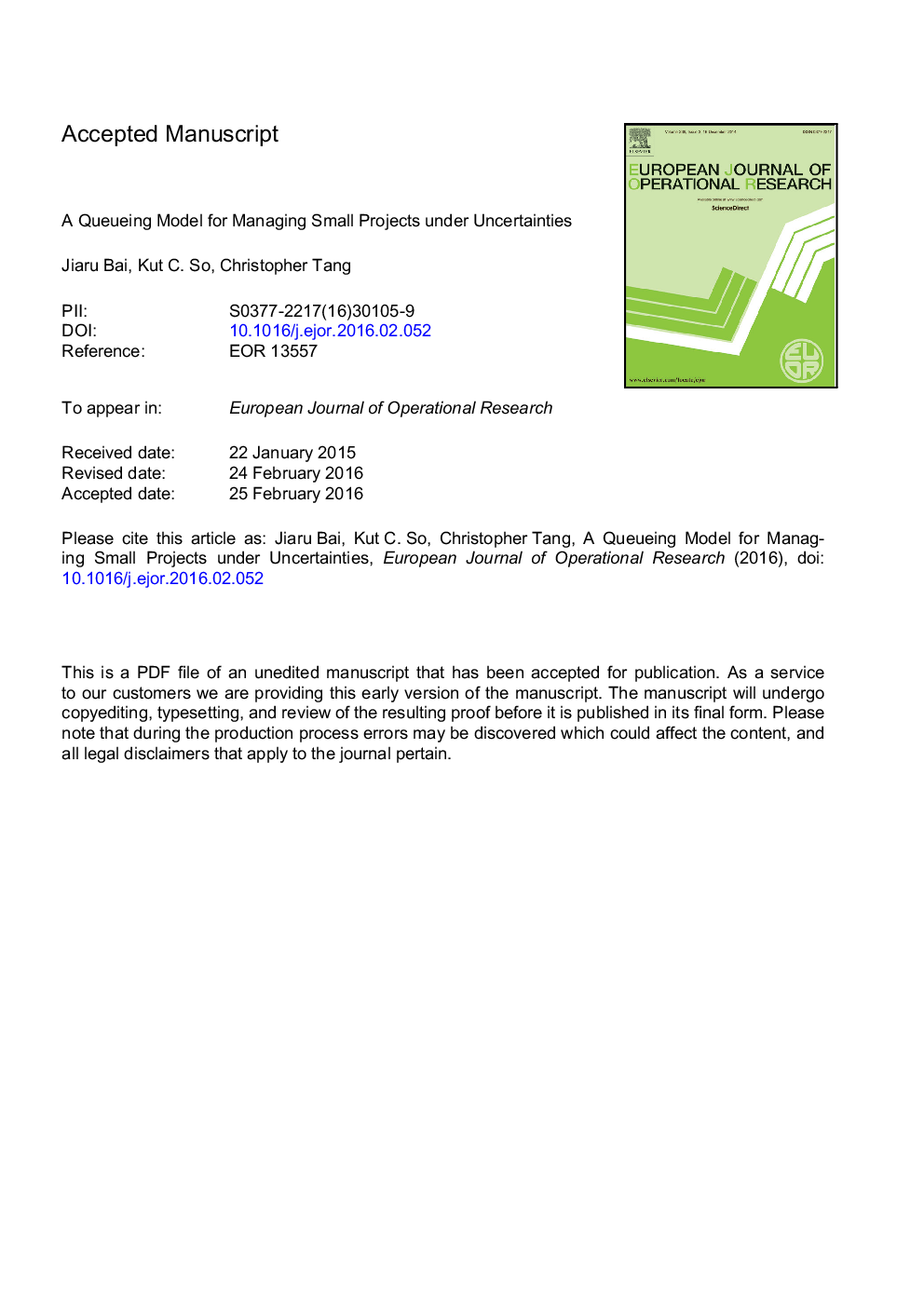| کد مقاله | کد نشریه | سال انتشار | مقاله انگلیسی | نسخه تمام متن |
|---|---|---|---|---|
| 6895562 | 1445976 | 2016 | 40 صفحه PDF | دانلود رایگان |
عنوان انگلیسی مقاله ISI
A queueing model for managing small projects under uncertainties
ترجمه فارسی عنوان
یک مدل صف بندی برای مدیریت پروژه های کوچک تحت نامطمئن
دانلود مقاله + سفارش ترجمه
دانلود مقاله ISI انگلیسی
رایگان برای ایرانیان
کلمات کلیدی
مدیریت پروژه، چند پروژه، مدل های صف بندی، بهینه سازی،
موضوعات مرتبط
مهندسی و علوم پایه
مهندسی کامپیوتر
علوم کامپیوتر (عمومی)
چکیده انگلیسی
We consider a situation in which a home improvement project contractor has a team of regular crew members who receive compensation even when they are idle. Because both projects arrivals and the completion time of each project are uncertain, the contractor needs to manage the utilization of his crews carefully. One common approach adopted by many home improvement contractors is to accept multiple projects to keep his crew members busy working on projects to generate positive cash flows. However, this approach has a major drawback because it causes “intentional” (or foreseeable) project delays. Intentional project delays can inflict explicit and implicit costs on the contractor when frustrating customers abandon their projects and/or file complaints or lawsuits. In this paper, we present a queueing model to capture uncertain customer (or project) arrivals and departures, along with the possibility of customer abandonment. Also, associated with each admission policy (i.e., the maximum number of projects that the contractor will accept), we model the underlying tradeoff between accepting too many projects (that can increase customer dissatisfaction) and accepting too few projects (that can reduce crew utilization). We examine this tradeoff analytically so as to determine the optimal admission policy and the optimal number of crew members. We further apply our model to analyze other issues including worker productivity and project pricing. Finally, our model can be extended to allow for multiple classes of projects with different types of crew members.
ناشر
Database: Elsevier - ScienceDirect (ساینس دایرکت)
Journal: European Journal of Operational Research - Volume 253, Issue 3, 16 September 2016, Pages 777-790
Journal: European Journal of Operational Research - Volume 253, Issue 3, 16 September 2016, Pages 777-790
نویسندگان
Jiaru Bai, Kut C. So, Christopher Tang,
